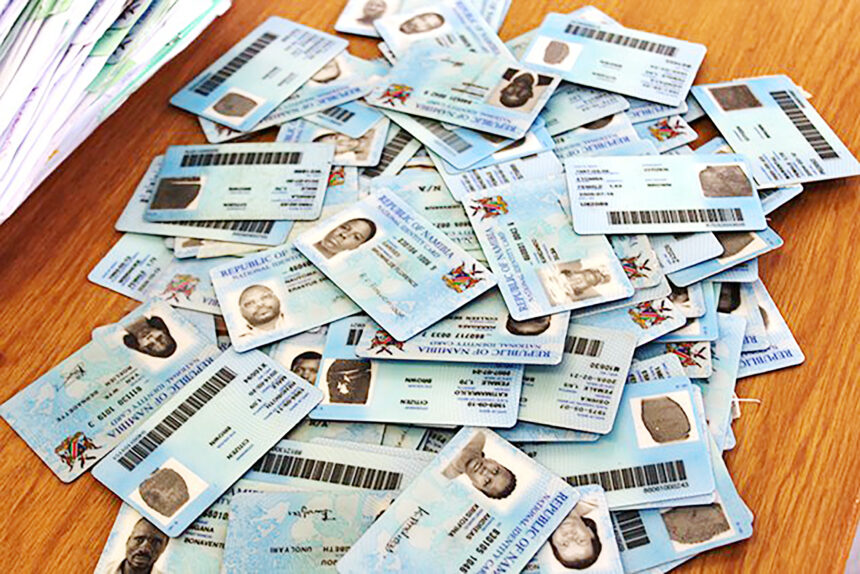The Ministry of Home Affairs, Immigration, Safety and Security has stated that despite bringing services closer to Namibians,
the challenge of uncollected identity cards (IDs) persists.
To address this issue, the ministry commemorated ID Day 2024 on 16 September to raise awareness and
promote dialogue around the key dimensions of legal identity, which are inclusion protection and empowerment.
“Throughout this ID week, uncollected ID cards will be taken to designated centres for easy collection. Regional government authorities have been engaged to identify ideal connection points, and to
communicate the programme through community teams, including stations.
Some regions will also do administration and applications for both ID and duplicate documents,” said the ministry’s executive director, Etienne Maritz.
He advised Namibians to visit their
local collection centres and collect their
IDs promptly, adding that “the verifiable proof of identity is crucial, and uncollected IDs undermine this fundamental
right”.
He added that “in 2001, up to 70 000 identity documents were uncollected. Unfortunately, this issue persists today, and more than 130 000 identity documents are uncollected”.
The government, through the line ministries, conducted a nationwide mass registration programme from 5 February to 31 July 2024 to bring birth and identity document registration closer to the
people.
He noted that the initiative also included undocumented residents who did not meet current requirements for national documents.
“These individuals’ potential status is being recorded in a functional register in anticipation of forthcoming legislation to address statelessness, marking a significant step towards regularising their status and enhancing social progression,” he said.
The ministry’s spokesperson, Margaret Kalo, told New Era yesterday that they have initiated ways for applicants to obtain their IDs.
“We have noticed that some applicants come and apply here in Windhoek, and then return to their native places. It is best to inform the ministry of your location. We have couriered IDs, and
have initiated that process. But if they
don’t communicate that with us, we will forever assume that they are still in Windhoek and will eventually come and collect their IDs,” she stated.
She said they are using several mediums of communication to reach the masses so that they collect their ID cards through inserts that will be running on television and radio.


